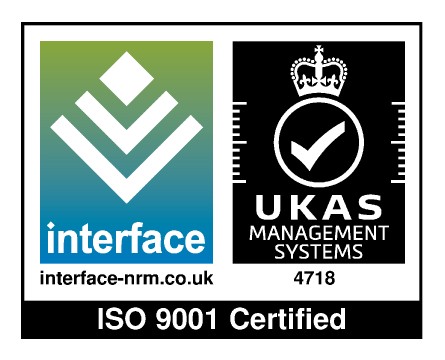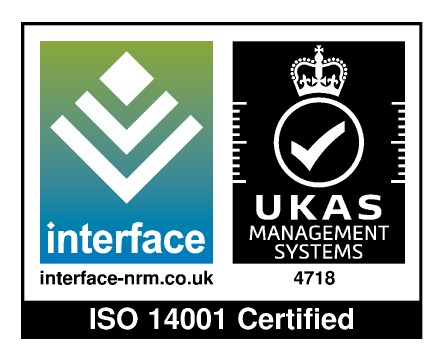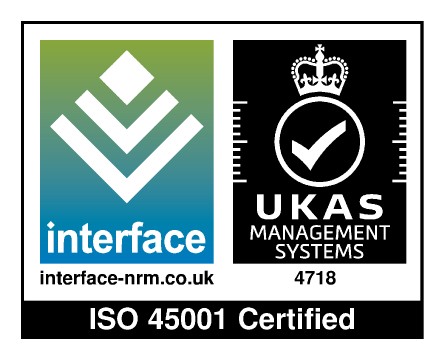ISO Re-accreditation (ISO 9001, ISO 14001 and ISO 45001)

We recently undertook our UKAS ISO re-accreditation for ISO 9001, ISO 14001 and ISO 45001 to show our continued commitment to quality, environmental sustainability and safety.
You can read more about our accreditation process with Interface NRM here.
ISO 9001, ISO 14001, and ISO 45001 are three important standards that address different aspects of quality management, environmental management, and occupational health and safety management respectively. Below is a summary of the ISO standards we are accredited for:
ISO 9001 is the international standard that specifies requirements for a quality management system (QMS). It is the most widely recognised quality management standard globally and provides a framework for organisations to demonstrate their ability to consistently provide products and services that meet customer and regulatory requirements. Here's why it's important:
• Customer Satisfaction: ISO 9001 helps organisations focus on customer satisfaction by ensuring that their products and services consistently meet customer needs and expectations.
• Process Improvement: It encourages organisations to adopt a process approach to quality management, leading to improved efficiency and effectiveness.
• International Recognition: Certification to ISO 9001 enhances an organisation's credibility and demonstrates its commitment to quality to customers, stakeholders, and regulators worldwide.
• Continuous Improvement: ISO 9001 emphasises the importance of continual improvement, encouraging organisations to identify and address areas for enhancement to enhance overall performance.

ISO 14001 is the international standard for environmental management systems (EMS). It provides a framework for organisations to identify and manage their environmental impacts effectively. Here's why it's important:
• Environmental Responsibility: ISO 14001 helps organisations demonstrate their commitment to environmental sustainability by identifying and managing their environmental aspects and impacts.
• Legal Compliance: Compliance with ISO 14001 ensures that organisations meet legal and regulatory requirements related to environmental management.
• Resource Efficiency: Implementing ISO 14001 can lead to resource efficiency and cost savings by reducing waste, conserving energy and water, and improving resource utilisation.
• Stakeholder Confidence: Certification to ISO 14001 enhances stakeholder confidence by demonstrating an organisation's proactive approach to environmental management and sustainability.

ISO 45001 is the international standard for occupational health and safety management systems (OHSMS). It provides a framework for organisations to proactively improve occupational health and safety performance, prevent workplace injuries and illnesses, and create safe working environments. Here's why it's important:
• Employee Welfare: ISO 45001 helps organisations prioritise employee health and safety, leading to a safer work environment and reducing the risk of work-related injuries and illnesses.
• Legal Compliance: Compliance with ISO 45001 ensures that organisations meet legal and regulatory requirements related to occupational health and safety.
• Reduced Costs: By preventing accidents and illnesses, organisations can reduce costs associated with absenteeism, medical expenses, insurance premiums, and regulatory fines.
• Reputation and Stakeholder Confidence: Certification to ISO 45001 enhances an organisation's reputation and demonstrates its commitment to the health and safety of its workforce, customers, and other stakeholders.

In summary, ISO 9001, ISO 14001, and ISO 45001 are important standards that help organisations improve their quality, environmental performance, and occupational health and safety management respectively.
Our compliance with these standards not only enhances organisational efficiency and effectiveness but also demonstrates our commitment to all stakeholders, including our customers, employees, suppliers and regulatory bodies.
